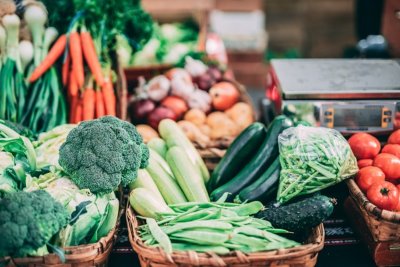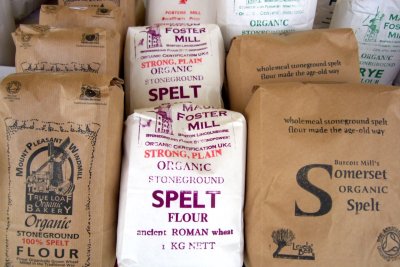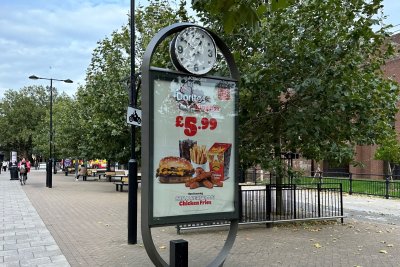Sustain perceives a complex problem at the local level: on the one hand, emergency food provision is being stepped down too quickly, leaving people more vulnerable to hunger; on the other hand, much of this food aid is being provided in ways that are unsustainable in the longer term. We advocate the maintenance of emergency food provision, but amended, in accordance with certain key principles set out below. We illustrate each principle with examples of work in practice.
The Covid-19 pandemic and its associated economic fallout have compounded and deepened household food insecurity and hunger in the UK. Individuals and families have been less able to access food than before, due to falling incomes, the need to self-isolate, and disrupted supply. Whilst government at every level has taken some action to mitigate this problem, the effect has been highly variable.
Whilst recognising national government’s role in securing welfare and wages and funding public services, Sustain believes that local authorities also have a responsibility to ensure food security for their residents, and can act as a leader in fostering local food resilience.
Many local authorities have played this part impressively in the immediate response to Covid-19. But in some cases, provision is undignified, unhealthy and unsustainable. The use of surplus food from supermarket supply chains to meet increased need, whilst reasonable as a stop-gap measure, poses potentially detrimental consequences in the longer-term. It obstructs an approach that centres dignity, autonomy and choice; and it further institutionalises and normalises a food system that has high levels of waste and unaffordability.
Local responses – what should be maintained and amended
Sustain previously outlined activities that local authorities can undertake to address food insecurity exacerbated by Covid-19 during the initial response phase. Here, we look instead towards recovery and longer-term resilience.
Firstly, we believe that many aspects of this emergency response should be maintained, especially any relating to financial vulnerability. Council-led responses should be altered, not rolled back. This includes support for infants, school age children, older people and people in financial hardship including those with 'no recourse to public funds’ (NRPF), as set out in our guidance. Central to the support for all of these groups have been the council-led food distribution hubs. These hubs should be maintained, but with amendments to their ethos and their manner of delivery, as set out below.
Wealth within your local area
Any post-Covid recovery should be done sustainably and ethically, and should maximise gains for the local area. Community wealth building is about designing policies which ensure that money keeps flowing within a local area, thereby providing good jobs for local people and building towards an inclusive, resilient local economy. In practice, this means that councils can:
- Work collaboratively with food poverty alliances, food partnerships or similar networks if one exists in your local area, and centre food anchor institutions in this work (as Food Cardiff have)
- If there is not a food poverty alliance, food partnership or similar network, work with actors from the local voluntary and community sector (VCS) groups to convene meetings between actors, coordinate action, and disseminate relevant information about what is available in your area. This could be the first step towards building a food network in your area.
- Embed one or more of the community wealth building principles into your work:
| Community Wealth Building Principles | What this means in practice and what councils can do |
|---|---|
|
Plural ownership of the economy |
Support: cooperatives; small and medium enterprises; food markets, especially where these source stock from small, relatively local British farmers; box schemes; and food growing. |
|
Making financial power work for local places |
Where grants are available from government to meet Covid-19 related needs, prioritise these to smaller and VCS actors who employ local people; use a cash card rather than vouchers if possible to make this more accessible – if voucher schemes are used, ensure local businesses, and not just supermarkets, can accept these. |
|
Fair employment and just labour markets |
Pay people for their time and labour, and at a real Living Wage. Steer away from reliance on volunteers to deliver food aid. |
|
Progressive procurement of goods and services |
Buy food rather than use food surplus. Use sustainable, local supply chains and look at wholesale and sustainable procurement options. |
|
Socially productive use of land and property |
Make available public land and property for food growing, cooking, and community food projects. Use school kitchens to make food for older adults in the community, with deliveries integrated with social care services for a ‘more than meals’ approach. |
Dignity in practice
To combat household food insecurity in the long term, we must ensure that people have enough money to buy the food they need. But in the short and medium term, direct food provision should not be stopped. Instead, it should be delivered in a way that recognises food as a right and which centres the dignity of everyone involved.
We have been inspired by the thinking developed by Nourish Scotland and draw on the principles they outline and their guidance for implementing them during Covid-19.
| Dignity principles | What councils can do per principle | What councils can to meet all principles |
|---|---|---|
|
Feeling a sense of control People have choice about what they eat, where, with whom |
Ensure emergency food aid such as food boxes at a minimum have options that meet dietary and cultural needs Help people to grow their own food and/or to access a range of affordable fresh fruit and veg |
Provide direct funding towards cash or cash cards rather than food provision Prioritise funding for VCS groups which embed one or more of these principles (see Nourish Scotland’s guidance on how community groups can enact these during Covid-19) Consult service users and volunteers from existing emergency food aid providers when designing new services Embed local advice and support initiatives into food aid hubs |
|
Feeling able to take part in community life People feel able to participate in different aspects of community life, regardless of their financial situation |
Limit eligibility criteria for services, instead basing them on ‘pay-as-you-feel’ and widening this out to anyone who self-selects Ask people how they would like to be contacted and ensure online communication is not the only option |
|
|
Feeling nourished and supported People are able to enjoy the food they eat, have access to adequate nutrition, and can access support they need |
Provide clear guidance on the support and resources available to residents Ensure emergency food aid provision includes varied and healthy food Ensure there are wrap-around services or signposting to anti-poverty schemes |
|
|
Feeling involved in decision-making People who use food services are consulted about the design of services. Their views are taken seriously, and they feel a sense of ownership over the service |
Establish feedback systems about emergency responses and use this feedback to amend services Consult the community about whether and when to roll-back emergency provision |
|
|
Feeling valued and able to contribute People who use food services are consulted about the design of services. Their views are taken seriously, and they feel a sense of ownership over the service |
Do not create financial barriers to entry, whilst minimising stigma that can be associated with ‘handouts’. This balancing act can be achieved for example by using a ‘pay-as-you-feel’ system |
Summary
Local authorities can lead a food recovery which builds and keeps wealth within their constituency, and which is dignified and inclusive. Emergency food aid should be provided with a view towards eradicating it – but this should not be done hastily nor in a manner which increases hardship in an immediate sense. Instead, emergency food aid can be delivered with sustainability and resilience in mind; they can have twinned benefits of meeting immediate need whilst working towards self-reliance and sustainability in the long term.
Local authorities should therefore support projects which:
- Buy food and use sustainable local supply chains where possible
- Provide people dignity through giving choice, culturally appropriate foods and moving to a social pantry model where there is some exchange of money for support
- Ensure there are wrap around services and/or signposting to anti-poverty schemes
- Support campaigns that demand the end of the need for food banks through appropriate benefits and support for financially vulnerable
- Create or at least maintain good employment
Relatedly, they should directly:
- Support food markets, small and medium good food enterprises, and food growing
- Procure food related goods and services which have sustainable and local supply lines and which treat employees well
- Support and work with food partnerships, food poverty alliances and/or the local VCS
Coronavirus Food Alert: Sustain's work on food resilience in the COVID-19 coronavirus pandemic.We are helping secure food for vulnerable people and supporting local emergency responses.



